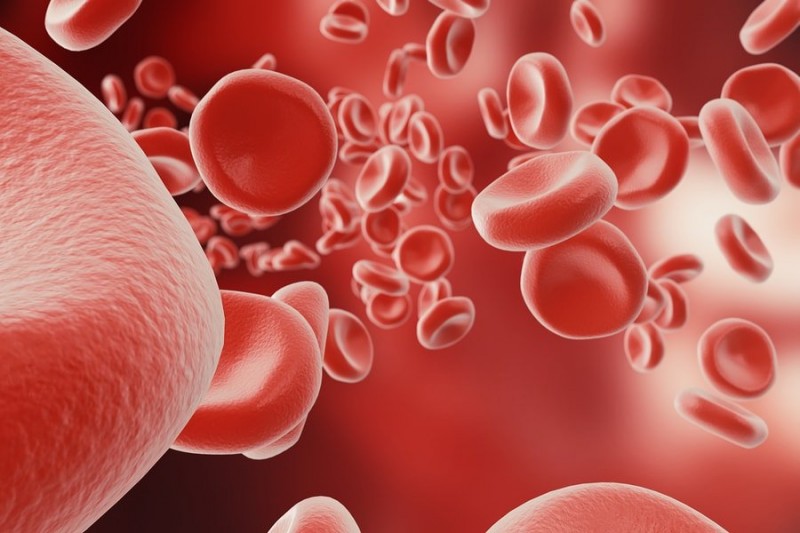
Hemoglobin, a crucial protein in red blood cells, plays a fundamental role in transporting oxygen from the lungs to various tissues and organs throughout the body. Its unique structure enables it to bind with oxygen and carry it efficiently, ensuring the body's proper functioning.
Hemoglobin Levels: A Vital Indicator
Monitoring hemoglobin levels is a key aspect of assessing one's overall health. This protein is quantified in grams per deciliter of blood, with normal ranges varying based on age, sex, and other individual factors. Deviations from the standard range can indicate underlying health issues.
Understanding the patterns associated with hemoglobin fluctuations is essential. While minor variations are common, persistent and unexplained decreases demand attention. Regular health check-ups and blood tests are valuable tools in identifying these patterns and initiating timely intervention.
Crucial Insights into Hemoglobin Fluctuations
Several factors contribute to the fluctuations in hemoglobin levels. Nutritional deficiencies, chronic diseases, genetic predispositions, and lifestyle choices all play significant roles. Unraveling these complexities requires a comprehensive approach that considers both physical and environmental factors.
Unraveling the Mystery Behind Recurrent Hemoglobin Decline
Recurrent decreases in hemoglobin levels may be indicative of underlying health issues. Nutritional deficiencies, particularly iron-deficiency anemia, are common culprits. Chronic diseases, such as kidney disorders or inflammatory conditions, can also contribute to persistent hemoglobin fluctuations. Understanding these potential causes is crucial for effective management.
Fatigue is a common symptom associated with decreased hemoglobin levels. The body's reduced capacity to transport oxygen can result in fatigue, weakness, and an overall lack of energy. Recognizing these subtle signals is paramount for early detection and intervention.
The Role of Pallor: Beyond Aesthetic Concerns
Pallor, or paleness of the skin and mucous membranes, is another visible sign of potential hemoglobin deficiency. While it may be mistaken for mere aesthetic concerns, persistent pallor should not be ignored, as it could signify an underlying health issue.
Inadequate oxygen supply due to low hemoglobin levels can lead to shortness of breath. Individuals experiencing unexplained breathlessness, especially during routine activities, should seek medical attention promptly. This symptom often indicates a more severe decline in hemoglobin levels.
Determining the severity of hemoglobin deficiency is crucial for appropriate medical intervention. Mild cases may be managed with dietary adjustments, while severe deficiencies might require more aggressive treatments, including blood transfusions. Timely medical consultation is imperative to assess the gravity of the situation.
The Importance of Timely Medical Intervention
Delaying medical intervention when hemoglobin levels are persistently low can lead to complications. Timely diagnosis and treatment not only address the underlying causes but also prevent the progression of potential health risks associated with prolonged hemoglobin deficiency.
Blood tests are the primary diagnostic tool for assessing hemoglobin levels. Complete blood count (CBC) and other specialized tests help healthcare professionals identify the specific type of anemia or underlying condition causing the hemoglobin decline. Regular monitoring through blood tests is essential for ongoing health management.
Diagnostic Imaging: Peering Inside for Clues
In some cases, diagnostic imaging such as MRIs or CT scans may be necessary to identify underlying health issues contributing to hemoglobin fluctuations. These advanced diagnostic tools provide a more detailed view of internal organs, aiding in a comprehensive diagnosis.
Low hemoglobin levels often lead to anemia, a condition characterized by insufficient red blood cells to meet the body's oxygen needs. Anemia can manifest with symptoms such as fatigue, weakness, dizziness, and pale skin. Understanding the link between hemoglobin and anemia is crucial for effective health management.
The Intricate Link Between Hemoglobin and Cardiovascular Health
Beyond anemia, low hemoglobin levels can impact cardiovascular health. Insufficient oxygen supply to the heart and other vital organs may contribute to cardiovascular complications. Recognizing this intricate link emphasizes the need for holistic health management.
Chronic diseases, such as kidney disorders or inflammatory conditions, can contribute to persistent hemoglobin decline. Addressing the underlying chronic conditions is vital for managing hemoglobin levels and preventing further health complications.
Ensuring a well-balanced diet rich in iron, vitamin B12, and other essential nutrients is crucial for maintaining optimal hemoglobin levels. Including iron-rich foods like leafy greens, lean meats, and fortified cereals can support the body's natural hemoglobin production.
Supplements: Bridging the Nutritional Gap
In cases of nutritional deficiencies, supplements may be recommended to bridge the gap and boost hemoglobin levels. However, these should be taken under medical supervision to prevent adverse effects and ensure optimal absorption.
Regular physical activity promotes overall health, including the maintenance of optimal hemoglobin levels. Exercise stimulates the production of red blood cells and enhances oxygen transport, contributing to a healthier circulatory system.
Adequate Rest: The Unsung Hero in Hemoglobin Management
Quality sleep and adequate rest play a pivotal role in maintaining hemoglobin levels. Sleep is the body's natural healing and regeneration process, essential for optimal physiological functions, including hemoglobin production.
Living with a chronic health condition can take a toll on emotional well-being. Healthcare providers should approach patients with empathy, understanding the emotional challenges they may face. Emotional support is integral to holistic health care.
The Vital Role of Support Systems
Fostering a robust support system, including family, friends, and healthcare professionals, is essential for individuals dealing with persistent hemoglobin issues. Emotional and practical support enhances overall well-being and facilitates effective disease management.
Embracing a Proactive Approach to Health
In conclusion, understanding the significance of hemoglobin levels and recognizing the symptoms associated with its persistent decrease empowers individuals to take a proactive approach to their health. Timely medical intervention, coupled with lifestyle adjustments and emotional support, can pave the way for effective management and improved overall well-being.
President Murmu, PM Modi honor BR Ambedkar on his death anniversary
Mahaparinirvan Diwas 2023: Remembering the Legacy of B R Ambedkar
Kumaraswamy Accuses Siddaramaiah of Appeasement Politics Over Minority Funds